[Disclaimer: This article is provided for educational and informational purposes only. The information presented here should not be considered medical advice – always consult a qualified healthcare provider before starting any peptide therapy or making changes to your health regimen.]
Copper peptides have become an increasingly popular addition to skincare routines.
Proponents claim these ingredients can smooth wrinkles, heal skin damage, and promote collagen and elastin production for a youthful glow.
However, some skincare users report experiencing sagging, enlarged pores, and skin irritation from overusing copper peptides.
So, can they really cause harm to your skin with long-term use?
Here, we explore the science behind copper peptides, their benefits and risks, and tips for using them safely.
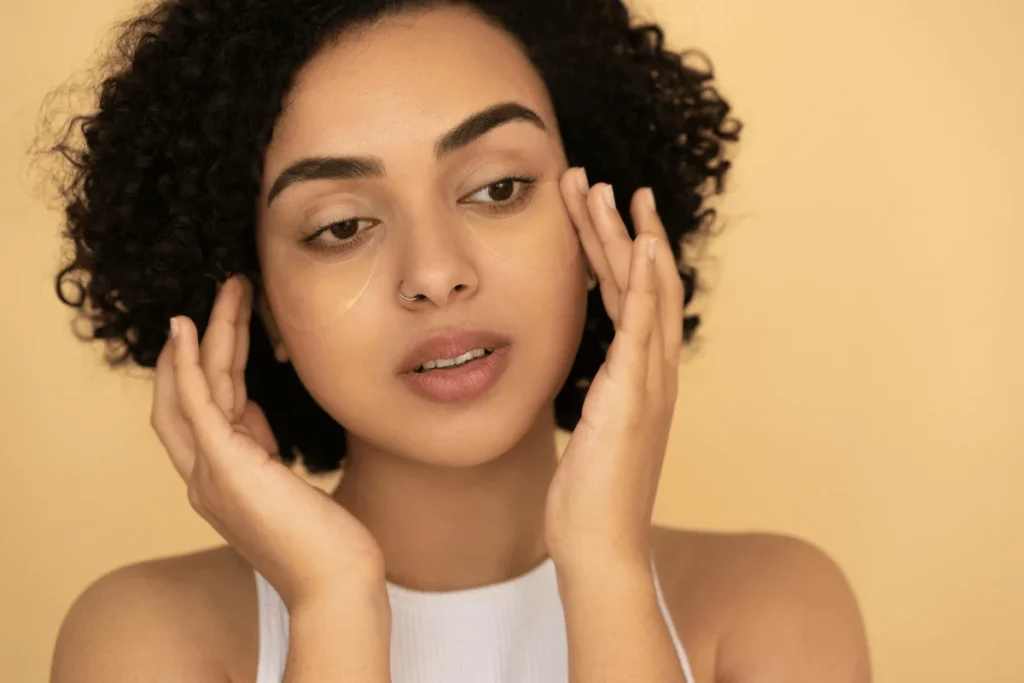
What Are Copper Peptides?
Copper peptides refer to complexes of the mineral ‘copper’ bound to short chains of amino acids called peptides.
Our bodies naturally contain a three-amino acid peptide called glycyl-L-histidyl-L-lysine (GHK), which binds easily with copper when applied topically to the skin.
They’re most evident in human plasma, saliva, and urine.
This copper-GHK complex, shortened to GHK-Cu, makes up the key ingredient of most copper peptide skincare products.
Some common names you may see on labels include copper tripeptide-1, GHK-Cu, or simply copper peptides.
The Science Behind Copper Peptides and Skin Health
Research shows that GHK-Cu levels in our blood decline with age, from around 200 ng/ml at age 20 down to 80 ng/ml by age 60.
Scientists believe restoring depleted GHK-Cu may help turn back the clock on aging skin in several key ways:
- Stimulating fibroblasts to increase collagen and elastin synthesis, improving elasticity and firmness
- Removing damaged proteins like sun-degraded collagen while signaling for their replacement
- Improving skin hydration and moisture retention
- Protecting keratinocytes from UV damage to prevent burns and sunspots
- Reducing inflammation and enhancing wound healing
This explains why skincare brands advertise copper peptides as an anti-aging peptide for healing and regeneration.
But the full story is more nuanced.
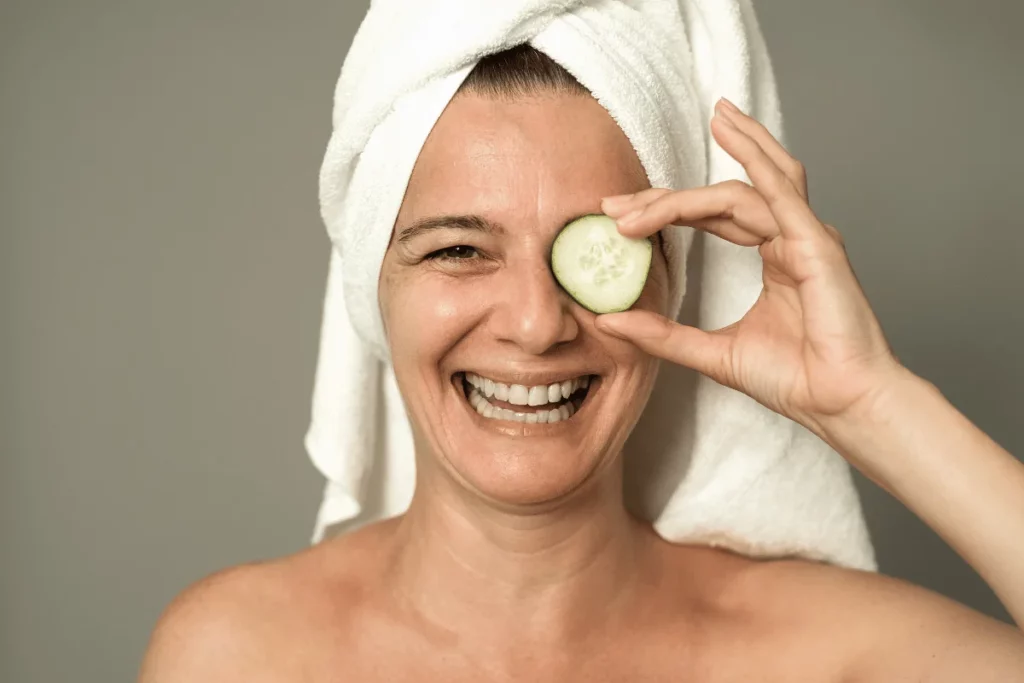
What Do Copper Peptides Do For Your Skin?
Over the past three decades, scientists have extensively studied GHK-Cu (the most common form of copper peptides) in older adults, discovering impressive anti-aging benefits.
Let’s focus on the five key benefits backed by scientific research:
1. Reduces Wrinkles and Fine Lines
If you’re concerned about aging skin, here’s some good news: Two major scientific reviews (published in 2015 and 2018) found that using GHK-Cu cream for 8-12 weeks significantly reduced the number and depth of wrinkles.
What’s particularly interesting is that it outperformed several popular anti-aging ingredients, including vitamin C, vitamin K, and even Matrixyl 3000.
These studies focused on women over 40, looking at improvements in both facial wrinkles and thigh area skin.
Even better? The results held true for women with significant skin damage from sun exposure or inadequate skincare routines.
An even larger study with 71 women using GHK-Cu cream for 12 weeks showed impressive results: thicker skin, better elasticity, improved clarity, and fewer wrinkles.
This consistent success comes from copper peptides’ ability to boost collagen and elastin, the proteins that keep skin firm and bouncy.
2. Shields Your Skin From UV Damage
Here’s something you might not know: UV damage isn’t just about sunburns – it’s one of the leading causes of premature aging and, in worst cases, skin cancer.
UV rays create “reactive oxygen species” in your skin, which can lead to aging, pigmentation problems, and other skin issues.
The good news?
GHK-Cu acts like a bodyguard for your skin cells, especially the keratinocytes (the cells in your skin’s outer layer that protect you from environmental damage).
This protection is most effective at a higher concentration (0.2% or 20 mg/ml). Skincare companies can easily incorporate this level of GHK-Cu into sunscreen formulations for optimal protection.
If you’re someone who burns easily or spends lots of time outdoors, this could be a game-changer for your skin protection routine.
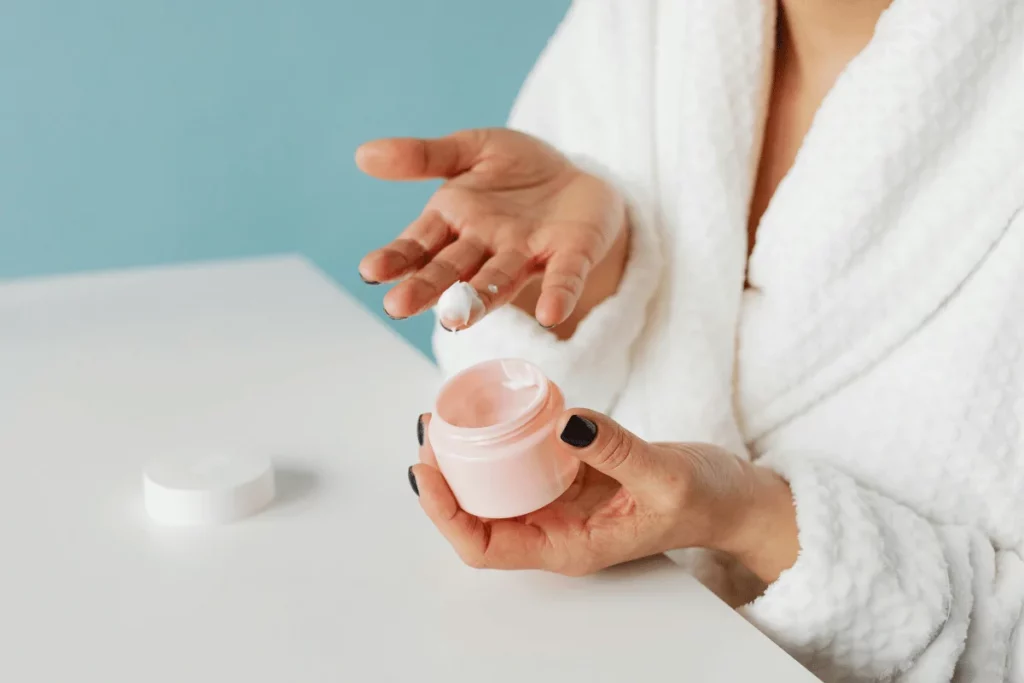
3. Accelerates Skin Healing and Repair
Copper peptides are powerful skin remodelers, too.
GHK-Cu is your skin’s repair crew. It works by activating special enzymes called metalloproteinases that clear away damaged proteins (like sun-damaged collagen and elastin) and scar tissue.
It simultaneously activates protective compounds (anti-proteases TIMP-1 and TIMP-2) that prevent your skin from breaking down too much protein.
Beyond this remodeling process, Dr. Pickart’s research shows GHK-Cu works in two other important ways:
- It calls in repair cells (like macrophages and capillary cells) to the damaged area.
- It fights inflammation through multiple mechanisms, including blocking harmful free radicals.
GHK-Cu also has sophisticated wound-healing abilities. It acts as a signal molecule that triggers tissue remodeling, helping your skin replace damaged tissue with healthy new tissue.
It also increases blood flow to injured areas, speeding up healing.
This makes it especially valuable if you’re into high-contact sports like martial arts, where facial and bodily injuries are common.
But there’s more – GHK-Cu is also a powerful antioxidant with a unique trick: it prevents iron-related damage in wounded tissue.
Here’s how it works:
When tissue is injured, iron can cause problems by triggering lipid peroxidation (a kind of cellular damage) and increasing the risk of infections.
GHK-Cu blocks this by binding to ferritin (an iron-storage protein) and preventing it from releasing harmful iron.
This mechanism helps prevent inflammation and fights off potential infections.
This comprehensive healing action makes it particularly effective for:
- Treating various types of scars, including ulcers
- Healing acne scars
- Repairing tissue damage
- Potentially helping with diabetic wounds
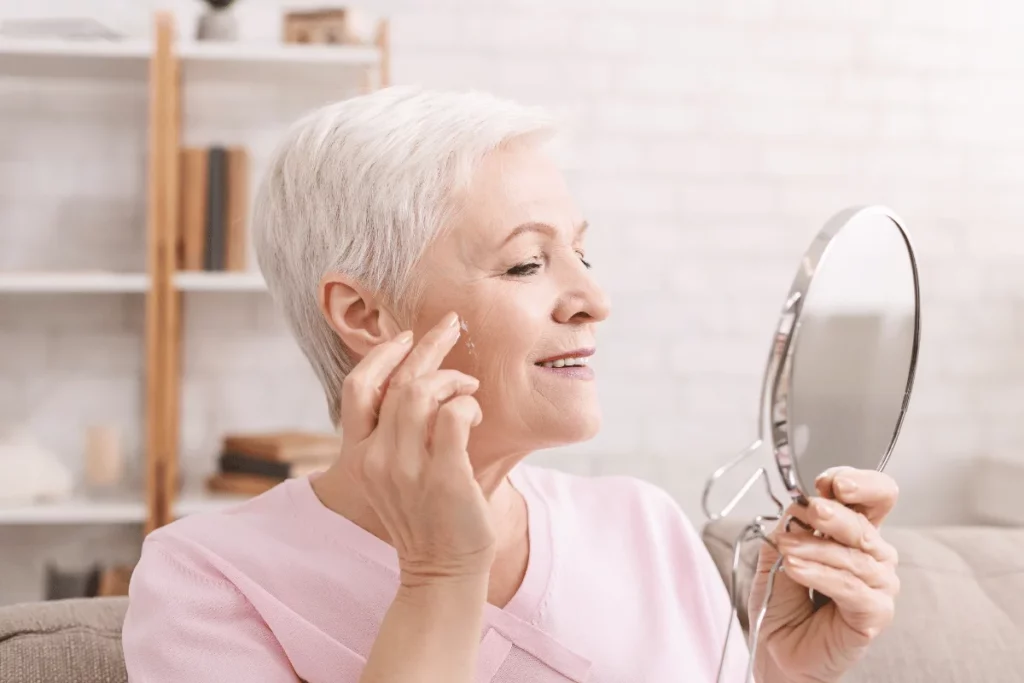
4. Evens Out Skin Tone
If uneven skin tone is your concern, this benefit might interest you.
In one case study, the user reported dramatic results after just one week of GHK-Cu use:
- Dark patches began fading and breaking up into smaller freckles
- Even the pore size visibly decreased
This isn’t just anecdotal—Dr. Loren Pickart, who discovered GHK-Cu, has documented similar effects in his research.
5. Transforms Overall Skin Quality
A pilot study showed that GHK-Cu improves multiple aspects of skin health simultaneously.
We’re talking about:
- Fewer fine lines
- Better hydration
- Smoother texture
- Improved skin tone
- Increased skin thickness
- Firmer, more elastic skin
- Increased collagen production
- Protection against sun damage
- Better resistance to future aging signs
One standout study of 20 women showed that GHK-Cu increased collagen production in 70% of participants – significantly better than vitamin C (50%) or retinoic acid (40%).
That’s quite impressive when you consider how popular vitamin C and retinoids are for skin rejuvenation.
Remember, while these benefits are impressive, consistency is key – you’ll need to use copper peptides regularly as part of your skincare routine to see these results.
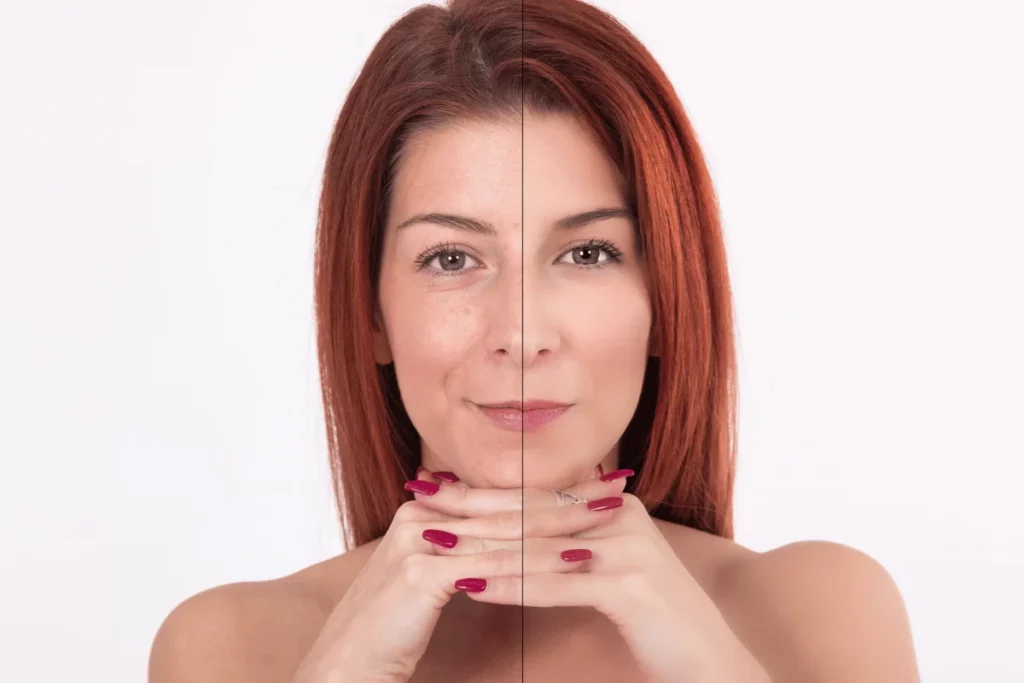
Potential Side Effects of Copper Peptides for Skin
Safety is always a top concern when it comes to skincare ingredients, and copper peptides—particularly GHK-Cu—have been extensively studied.
It stands out as one of the safest copper peptides you can use on your skin. Research shows that GHK-Cu:
- Doesn’t irritate the skin (unique among copper peptides)
- Doesn’t cause cell toxicity
- Doesn’t trigger skin irritation markers
- Works gently, even on sensitive skin
- Is safer than traditional anti-inflammatory treatments like corticosteroids
Scientific research shows that GHK-Cu’s therapeutic effects occur at doses 300 times lower than what would be considered toxic.
To put this in perspective, effective wound healing in studies occurred at about 1.1 mg per kilogram of body weight (approximately 75 mg in humans), while problematic effects don’t show up until doses far beyond this.
However, like any skincare ingredient, there are potential risks to be aware of:
- Never ingest copper peptides – this can cause:
- Nausea
- Digestive issues
- Potentially serious organ problems
- Some people might experience:
- Mild rashes (though less common than with retinoids)
- Skin sensitivity (especially if using other exfoliating products)
- High doses can lower blood pressure. But this requires amounts (22,500 mg) far beyond typical skincare concentrations.
Dr. Loren Pickart also reports no significant issues arising from its use in cosmetics or wound healing studies.
However, it’s worth noting that GHK-Cu isn’t FDA-approved for therapeutic use. When used in medical settings through injections, applications should only be performed by qualified professionals.
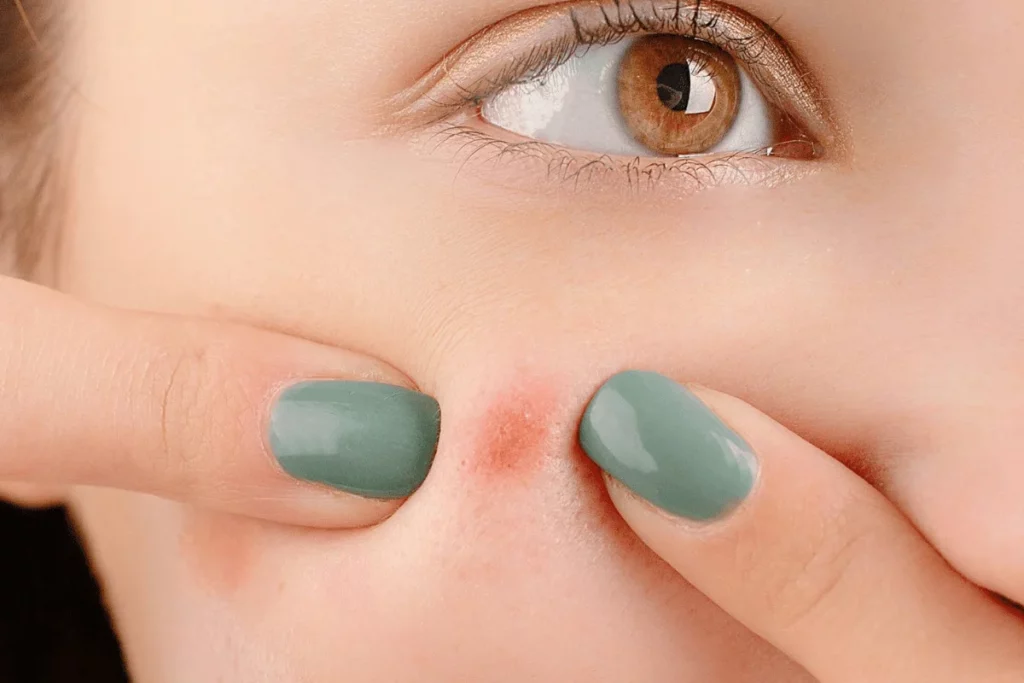
How to Know if Copper Peptides Are Right for Your Skin
Copper peptides don’t agree with everyone.
While they’re perfectly legal (as are most legal peptides in skincare), that doesn’t mean they’re right for everyone’s routine.
Before trying them, consider factors like:
- Your Age: GHK-Cu aims to restore youthful skin qualities that naturally decline over time. If you’re under 30, your body likely produces sufficient copper peptides already. However, those above 30 may benefit more from topical application.
- Your Skincare Focus: Those seeking to reduce wrinkles and sun spots or heal acne scars could see excellent results from copper peptides. If firmness and elasticity aren’t your concerns, you may not need them.
- Ingredient Sensitivities: Watch closely for irritation, breakouts, or negative texture changes, which signal copper peptides may not suit your skin long-term.
- Your Current Routine: Copper peptides can interact with acids, vitamin C, and retinoids, making timing and compatibility tricky. If you rely on those ingredients already, proceed cautiously.
Start by patch-testing diluted copper peptides first before applying them all over your face.
Observe any reactions over 1-2 weeks.
If all seems well, slowly incorporate the product into your regimen, starting with 2-3 times per week.
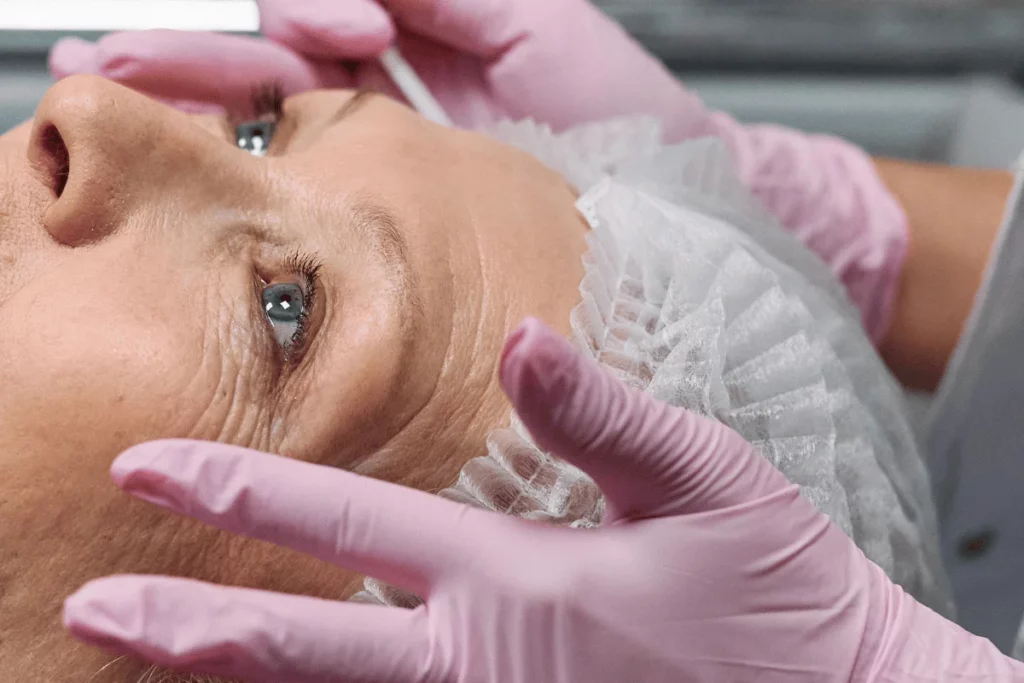
Tips to Avoid Skin Damage When Using Copper Peptides
Follow these best practices to maximize benefits and minimize risks with copper peptides:
- Use only 2-4 drops of copper peptide serum in each application – a little goes a long way!
- Limit usage to once every other day if tolerated. No need to overdo it.
- Apply copper peptides alone first, then follow with other products once absorbed fully.
- Alternate copper peptides with exfoliating acids or vitamin C – don’t combine in the same routine.
- Monitor skin closely and reduce frequency or stop if you see negative changes.
- Take at least one month off every 3-4 months to allow skin to reset.
Proceed with realistic expectations. While copper peptides can improve skin, they cannot fully stop intrinsic aging.
Following best practices helps ensure you get the glow without the sag!
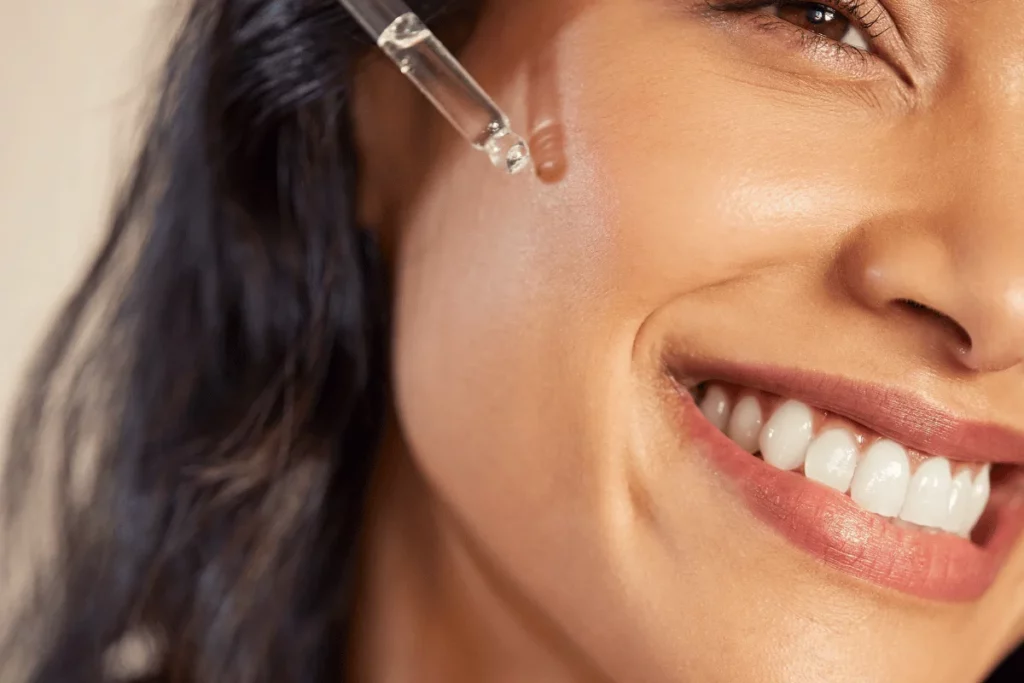
Frequently Asked Questions (FAQs)
Let’s address some common concerns about copper peptides:
Can Copper Peptides Be Used with Other Skincare Ingredients?
Not all ingredients play well with copper peptides. Here’s what to avoid:
- Vitamin C (use at different times of day)
- Direct acids (AHAs/BHAs) (use on alternate days or at different times of day)
- Retinol (use on alternate nights)
- Niacinamide (can be used together but may reduce effectiveness)
How Long Does It Take to See Results From Copper Peptides?
Improvements happen gradually. Based on all the studies linked above, benefits may be seen after 8-12 weeks of consistent application.
Initial improvements are often seen within 2-4 weeks.
Give copper peptides at least 2-3 months before deciding if they work for your skin.
What Are the Best Alternatives to Copper Peptides for Skin Healing?
Proven options for reducing wrinkles and sun damage include retinoids, vitamin C, alpha hydroxy acids, and other peptides without copper (like Matrixyl or Argireline).
Don’t forget to wear SPF 30+ sunscreen too!
You can also try over-the-counter hydrocolloid bandages, silicone scar sheets, and skin-nourishing oils to heal wounds or scars, or you can consult a dermatologist about professional treatments.
Conclusion – Are Copper Peptides Good for Skin?
So, what’s the final takeaway on copper peptides?
They can improve wrinkled or damaged skin when used properly. Recent research has even explored the potential of copper peptides for hair growth, with promising early results.
However, some people experience sagging and breakouts from overdoing it. That’s why the jury is still out on whether it’s safe to use them every day long-term.
We recommend trying these potent ingredients only 2-3 times a week at most to be safe.
Give it 2-3 months to see how your skin responds. If you notice improvements, you can keep using them cautiously. But if you see new breakouts, irritation, enlarged pores, or looseness, take a break.
Like any other topical medication, what works for one person may not work for another!